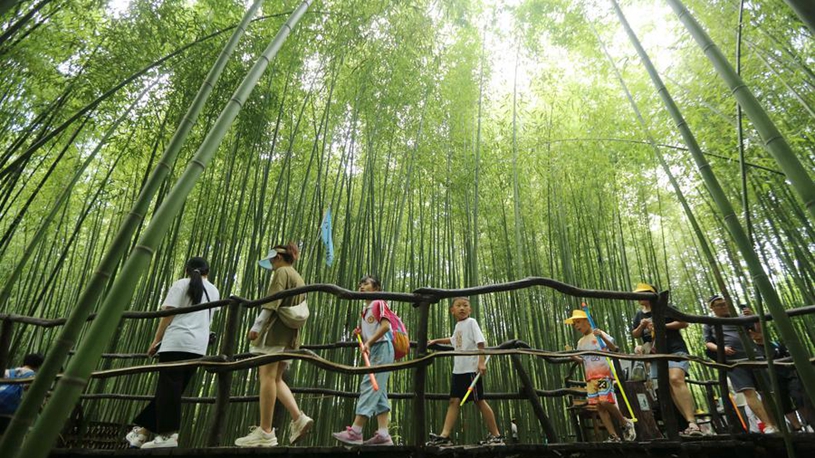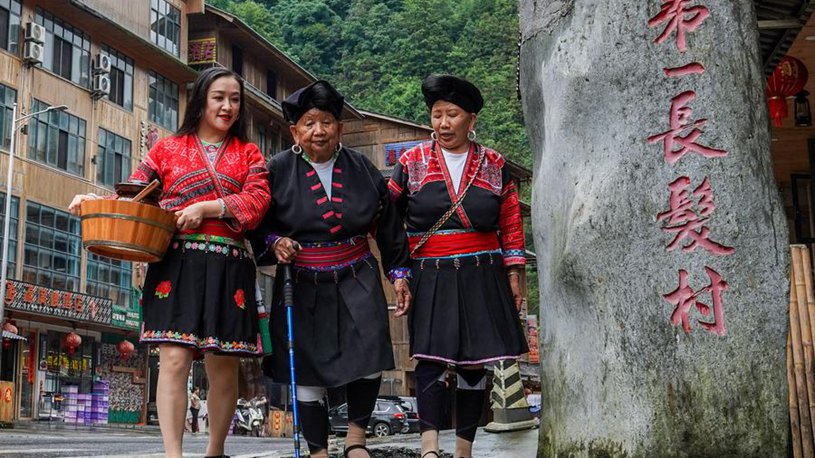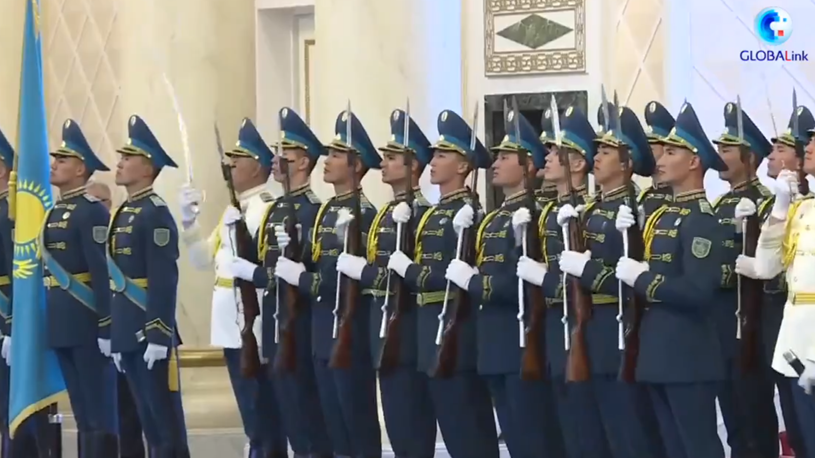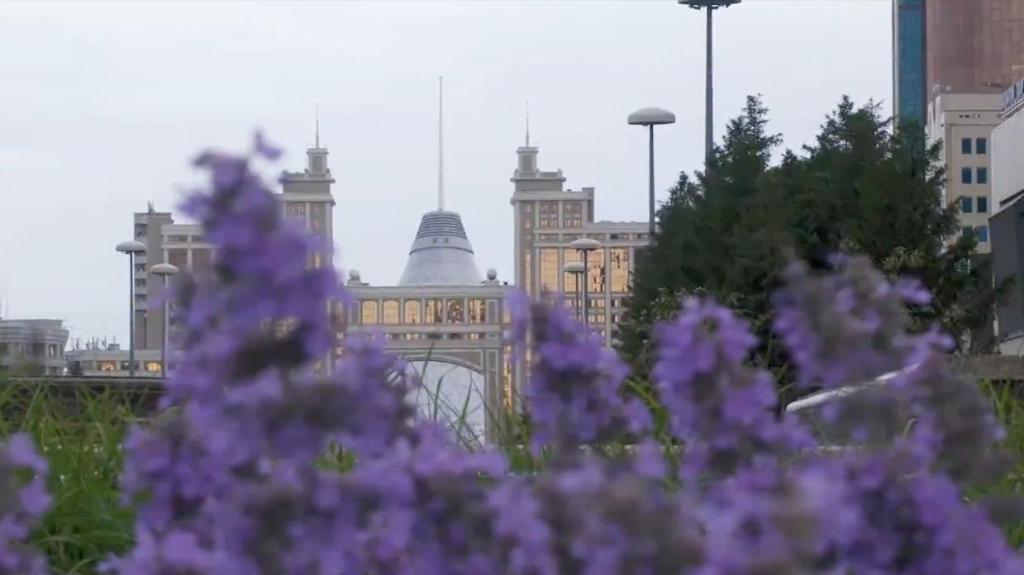Hunting and photography tourism in northern Botswana has brought financial and social benefits to local communities, the Botswanan Ministry of Environment and Tourism said.
GABORONE, July 4 (Xinhua) -- Hunting and photography tourism in northern Botswana has brought financial and social benefits to local communities through community trusts under the Community-Based Natural Resources Management (CBNRM) initiative, the Botswanan Ministry of Environment and Tourism said.
Through hunting tourism, they generate revenue, receive benefits in game meat, manage their natural resources, and distribute their benefits within the community, Johane Tlholego Ngwengare, chief of Phuduhudu Village in Kgalagadi District, told Xinhua in an interview on Wednesday.
With the Xhauxhwatubi Development Trust in the village, Ngwengare said, when an elephant is hunted, the trust has an arrangement in place to distribute game meat equally among the 153 families in the village for free.
"At the end of the year, each family in the village can receive 2,000 pula (about 150 U.S. dollars)," he said.
The CBNRM initiative, which began in 1993 as a pilot effort, aims to involve communities near national parks and game reserves in the conservation of natural resources, particularly wildlife, and to avoid human-wildlife conflict.
According to the Ministry of Environment and Tourism, the CBNRM initiative primarily involves wildlife-based tourist activities such as photography and safari hunting, but also provides opportunities for local communities to participate in tourism development and natural resources conservation.
Letsoseng Leburu, secretary of the Xhauxhwatubi Development Trust, said that the trust has facilitated scholarships for students in hospitality courses, the acquisition of skills in the tourism business, and sponsorship of local sporting activities.
For 2024, the trust is expected to earn 3.02 million pula (220,000 dollars) under a quota system that encourages regulated and selective hunting in a specific season.
Based on the Department of Wildlife and National Parks' latest figures, such hunting annually generates between 13 million pula and 31 million pula for the community trusts.
Communities in northern Botswana, such as Sankoyo, Khwai, and Mababe villages, have abandoned traditional livelihood activities such as subsistence hunting, veld product collecting, and cultivation, and shifted to a cash-based economy, with income from the CBNRM becoming the primary source for subsistence.
The CBNRM "has converted these villages' traditional economies into modern, tourism-driven economies," the ministry said.
Another community trust, Mababe Zokotsama Community Development Trust, employs its members at lodges and campsites.
"The trust is able to generate income through our wildlife. With the money, we build houses for the elders, sponsor tertiary education for our community, and give elders and orphans 700 pula each month through hunting tourism," said Katholo Mogodu, the trust's vice chairman. ■











